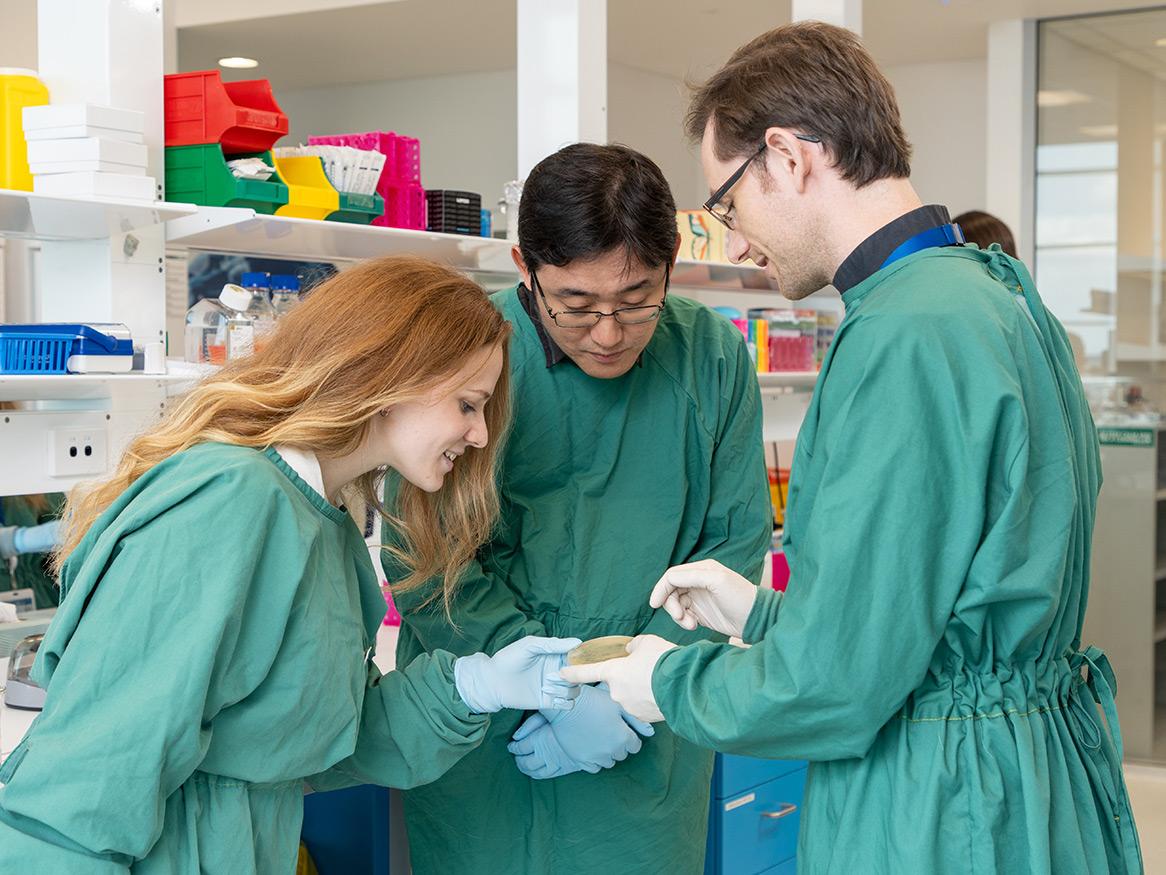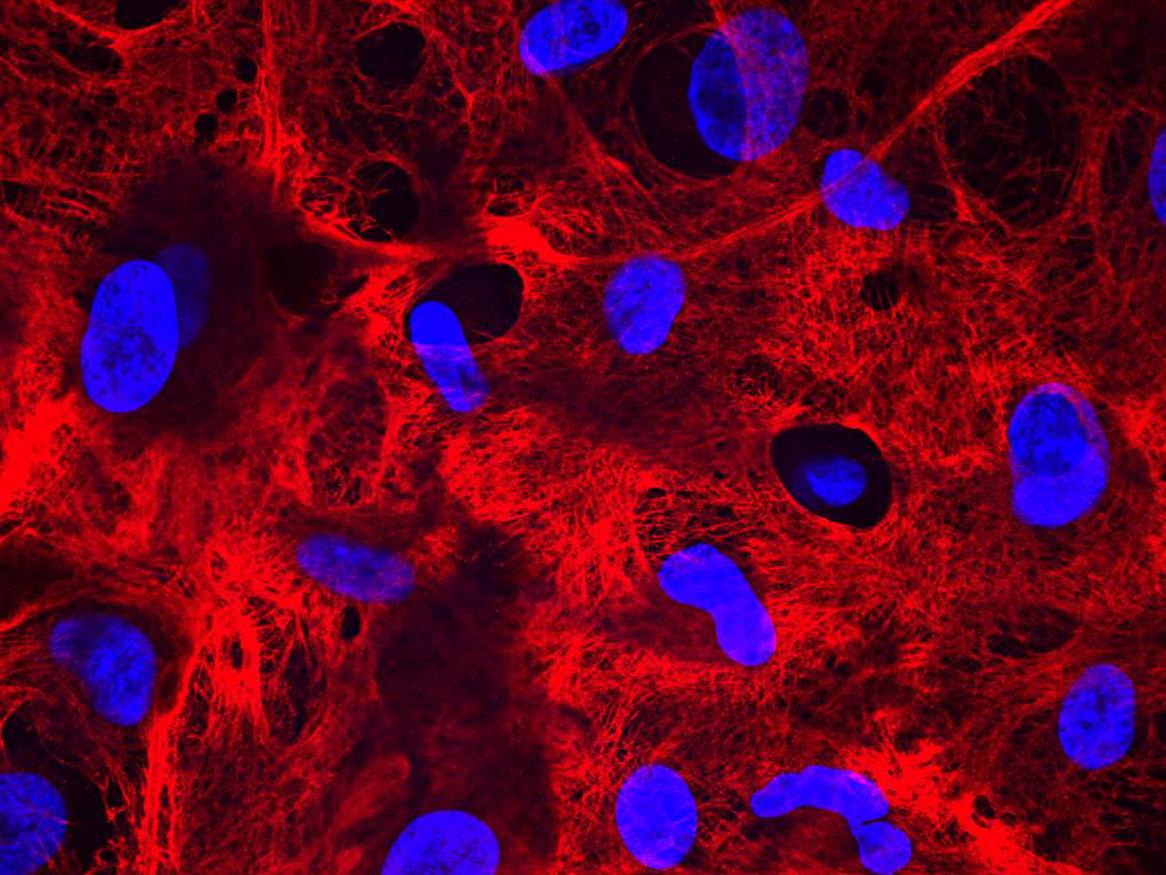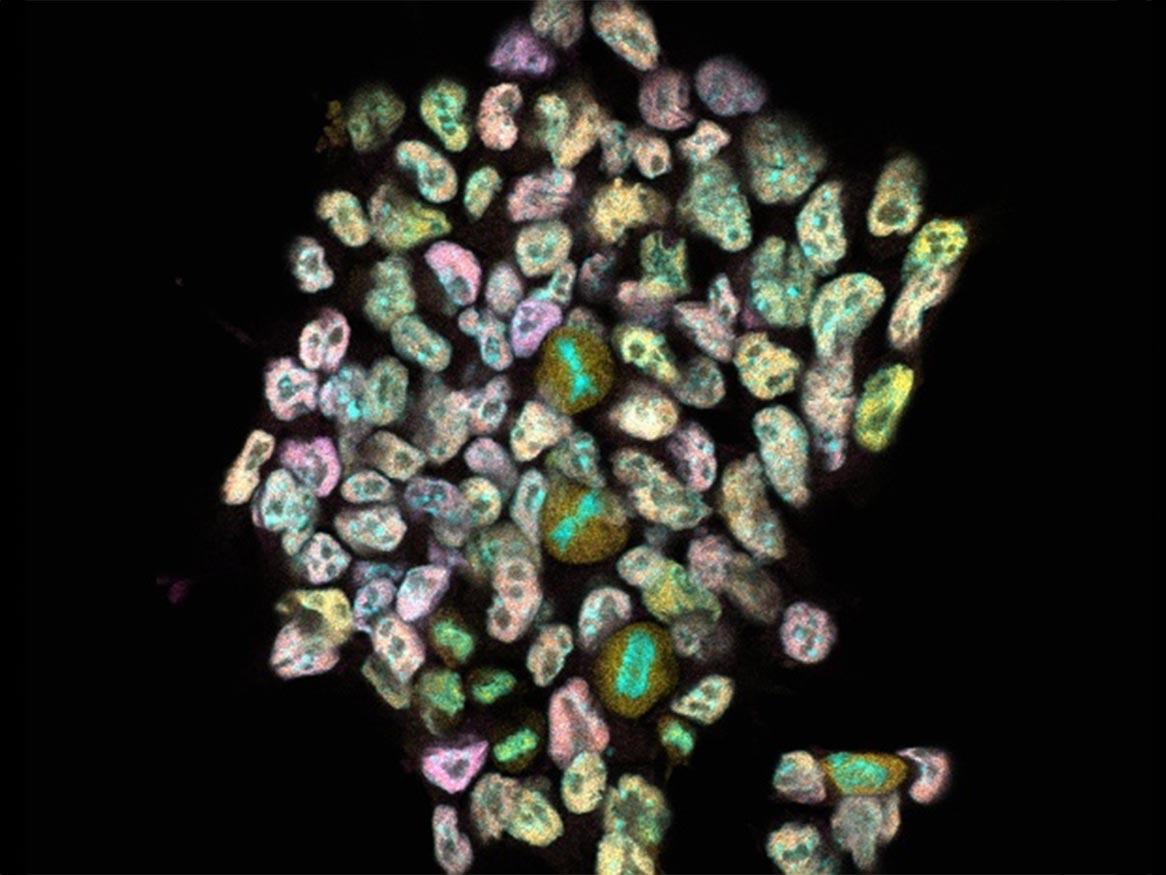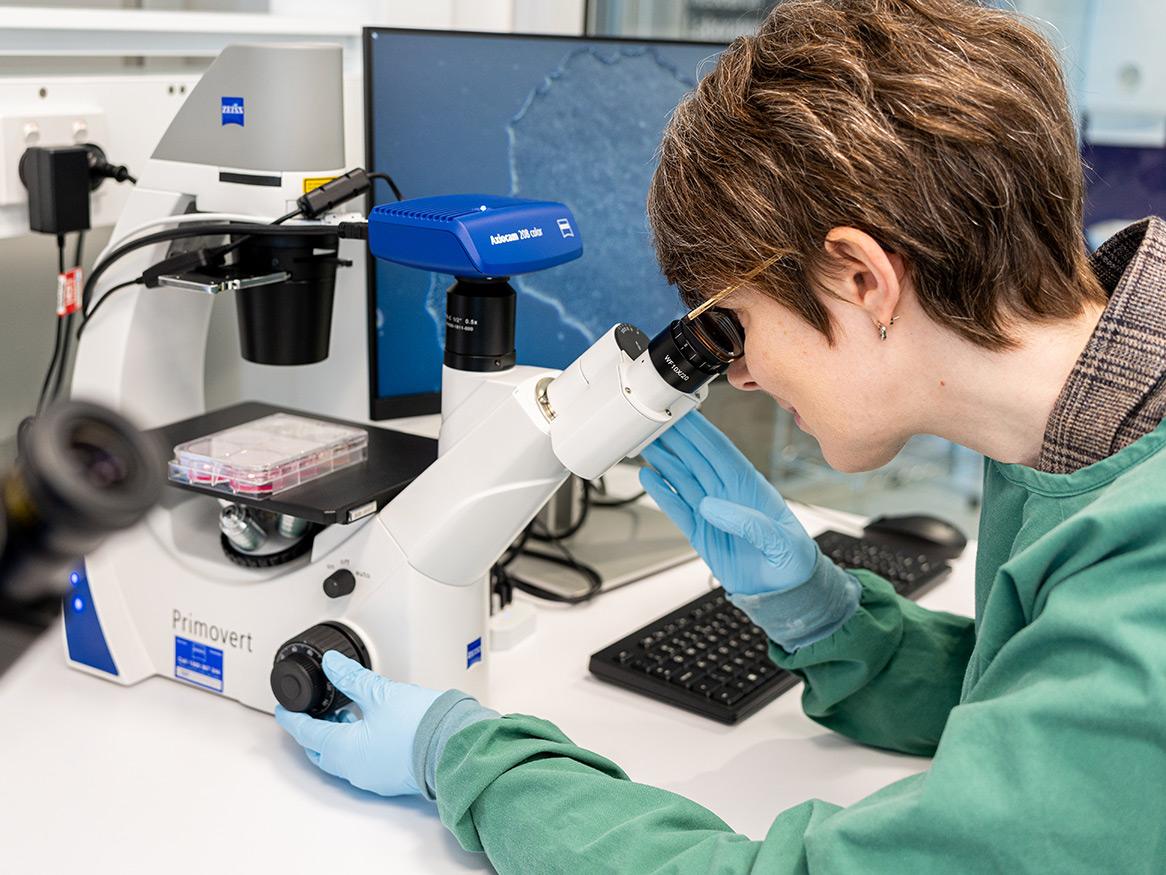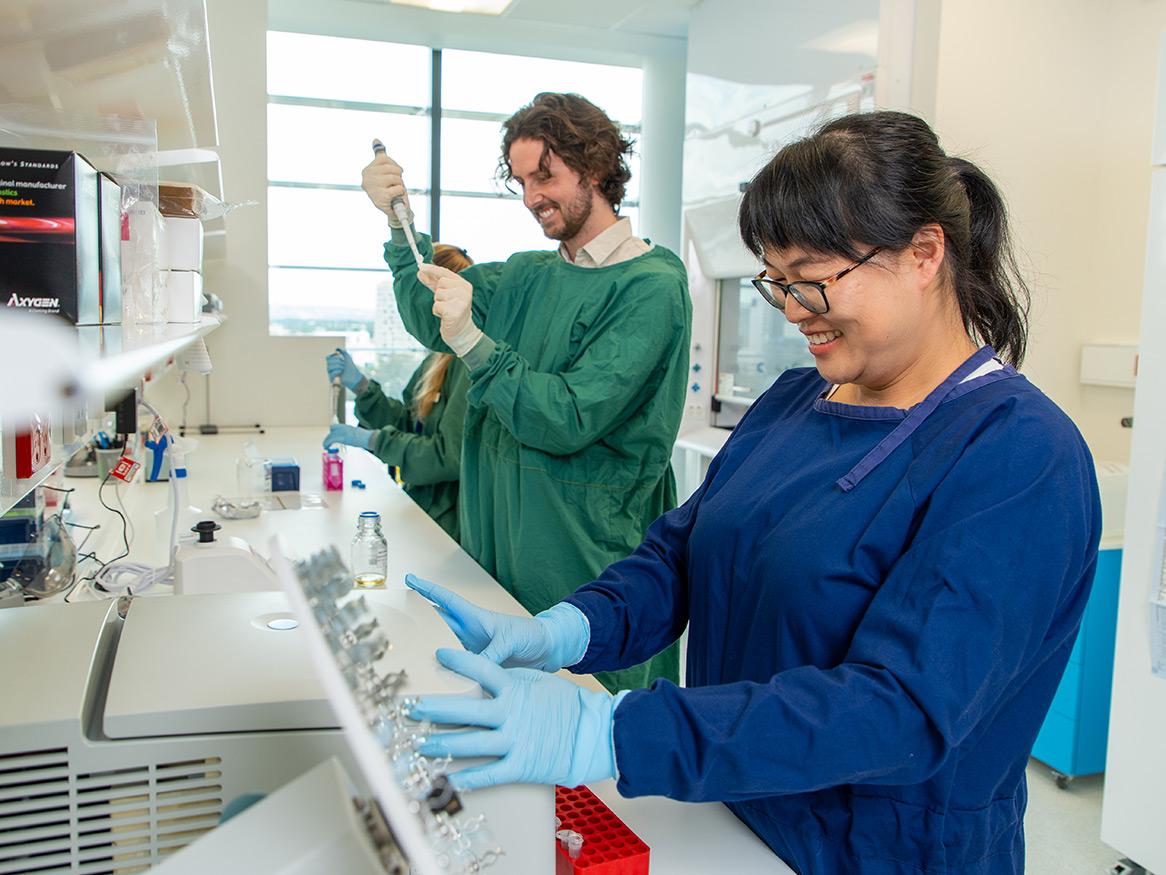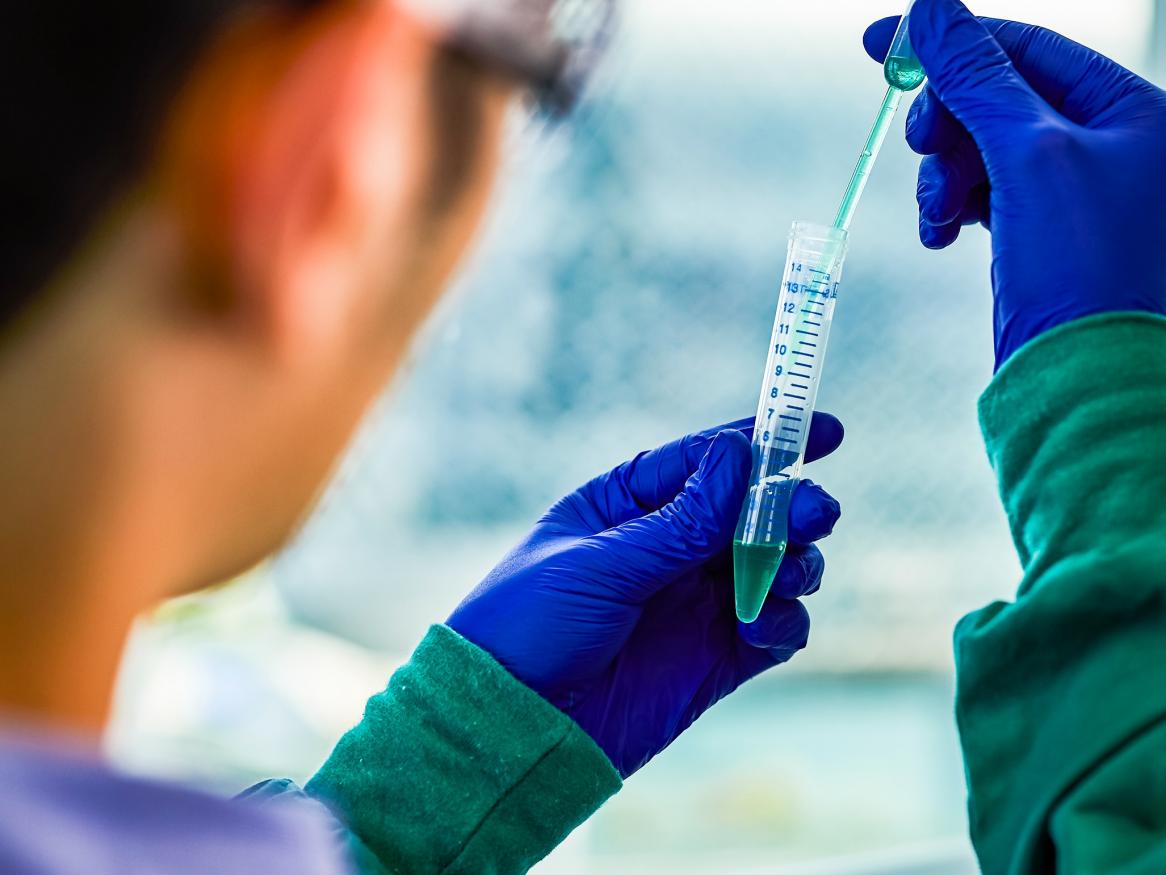Our Research
At ACE our research focuses on understanding how cells regulate gene expression.
The body is made up of over 100 different types of cells with a wide variety of different functions. The DNA within all of these cells contains genes that encode the instructions required to make each of these specialised types of cells. Interestingly, even though all the cells in the body differ so greatly phenotypically, they all contain an identical set of genes. If all this genetic information is the same, this raises the question of how do specialised cells like heart, brain or skin cells become so different from each other?
Epigenetics is a rapidly evolving field of scientific research that explores the molecular mechanisms governing gene regulation and gene expression without changes to the underlying DNA sequence. It delves into the intricate and dynamic modifications that occur in the structure of DNA and associated proteins, such as histones, to control which genes are activated or silenced. Understanding epigenetic processes is critical for unravelling the complexity of various biological phenomena, including development, disease, and environmental influences. ACE is dedicated to advancing this exciting frontier of science to shed light on how epigenetic changes impact health and disease, with the goal of translating this knowledge into innovative medical solutions.
Research in the Isbel Lab: Molecular epigenetics
The Isbel Lab is fascinated by the interactions between transcription factors and chromatin and means of controlling these interactions to influence DNA expression. In particular, through the use of a variety of genomics and proteomics tools in mammalian stem cells, cancer cell lines and animal models, we aim to identify novel means of altering transcription factor activity to open new avenues of cancer treatment.
Research in the Martelotto Lab: Single cell & spatial-omics lab
The Single Cell and Spatial-Omics Lab at ACE/SAIGENCI functions as a specialised academic incubator for the conception and preliminary assessment of new tools and methods in single cell, spatial, and genomics research. This space fosters innovation in technology generation, protocol formulation, equipment appraisal, and the development and integration of informatics tools. While the objectives and pursuits of this lab and its team (known as the Innovation Team) naturally adapt to the rapid progressions in the genomics realm, the enduring goal is to cultivate technologies with the promise of propelling research and its tangible benefits for the broader scientific fraternity. This lab is envisioned as a collaborative, technology-driven nucleus, offering comprehensive technical and intellectual aid throughout all phases of experimental endeavours, encompassing stages like planning, design, implementation, and interpretation. The Martelotto Lab stands as a comprehensive resource for collaborators seeking access to pioneering technologies, technical guidance, developmental support, and problem-solving assistance.
Research in the Nicholas Lab: Epigenetics in diabetes
The Nicholas Lab aims to understand how a sub-optimal maternal metabolic environment both before and during pregnancy programs disadvantage in the offspring leading to health effects that persist across the life course. The group focuses on the impact of maternal obesity on metabolic disease risk in children and the factors that may be contributing to this.
Research in the Polo Lab: Epigenetic processes in pluripotency & reprogramming
The Polo Lab is interested in transcriptional and epigenetic processes that govern cell identity, especially pluripotency, somatic cell reprogramming into induced pluripotent stem (iPS) cells, and their relevance to development and cancer. They aim to reprogram mature cells into a pluripotent state, to gain insights into the molecular and cellular events involved in cell type conversion. Using diverse techniques and stem cell models, they investigate epigenetic and genomic changes during cell fate transitions, the influence of cell origin on reprogramming and the role of transcription factors and transcriptional regulation in pluripotency, developmental biology and cancer.
Research in the Sullivan Lab: Development & epigenetics laboratory
The Sullivan Lab seeks to uncover how gene enhancer activity is molecularly controlled and its impact on cell identity, behaviour, and potency. In particular we focus on the selective activation and deactivation of enhancers through epigenetic changes, critical for the differentiation of multipotent progenitor cells during development, and the misregulation of these processes in malignancy. This research is essential for understanding both developmental processes and disease.
Research in the Zhang Lab: Epigenetics & gene regulation
Our research revolves around understanding the fundamental mechanisms governing epigenetic regulation, we aim to translate foundational laboratory findings into innovative therapeutic strategies. Presently, our primary focus lies in exploring the intricate interplay of chromatin-modifying complexes in both gene regulation and cancer pathology. We employ a multifaceted approach encompassing biochemistry, structural biology, cell biology, genomics, and bioinformatics to illuminate these complexities and pave the way for novel therapeutic interventions.
Research in the Pant Research Group: Otolaryngology, Head & Neck Surgery Clinical Epigenetics
The Pant Research Group is dedicated to advancing precision diagnostics and treatments for ear, nose, and throat diseases, with a primary focus on chronic rhinosinusitis and head and neck cancer. By integrating clinical trials with cutting-edge molecular and cellular technologies, and sophisticated computational approaches and AI, we are investigating epigenetic processes driving disease heterogeneity and therapy resistance. Our research is crucial for developing personalised treatments and testing novel cellular reprogramming strategies to restore immune tolerance, enhance regeneration and potentiate anti-cancer immunotherapies to improve patient outcomes.

